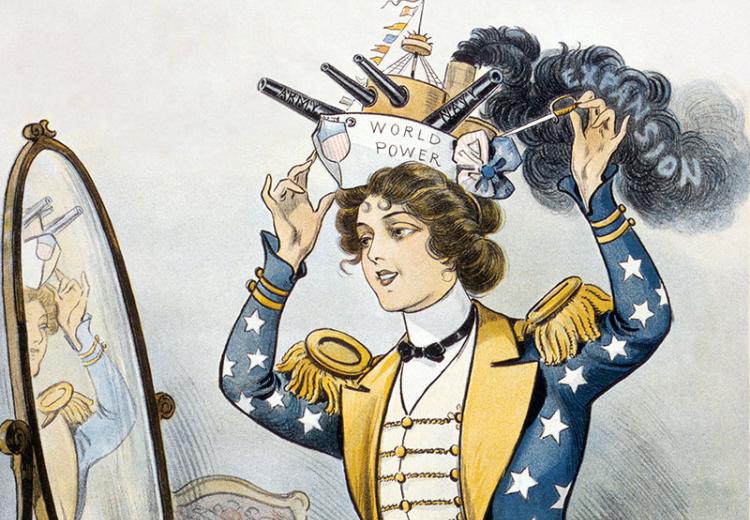The Birth of an American Empire

"Columbia's Easter Bonnet." 1901 Puck magazine cover celebrating America's new-found confidence as a budding world power.
The last decade of the 19th century was a time of great hope and anxiety. The major European empires and Japan threatened to exclude U.S. businesses from vital overseas markets and challenge U.S. security in the Western Hemisphere. Yet Americans shared the general optimism of the era that science, commerce and civilization had reached the point where great power conflict might be prevented or at least limited by international cooperation.
Guiding Questions
Why did the United States pursue national expansion and imperialism in the late 19th century?
To what extent was the Spanish-American War a fundamental shift in U.S. foreign policy?
What purpose did the Open Door Notes serve for U.S. foreign policy?
What role should the United States play in the world?
Learning Objectives
Define imperialism and evaluate its impact on the United States.
Analyze the arguments presented by the imperialists and the anti-imperialists.
Evaluate the short and long-term effects of the Spanish American War on domestic and foreign policy.
Evaluate the short and long-term effects of the Open Door Notes from multiple perspectives.
